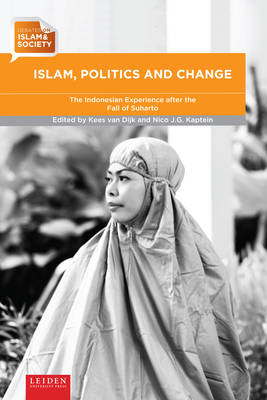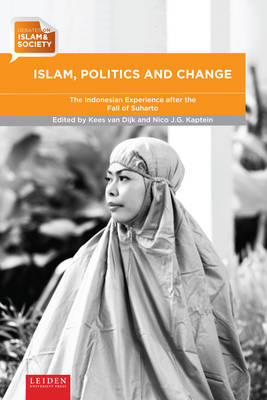
Je cadeautjes zeker op tijd in huis hebben voor de feestdagen? Kom langs in onze winkels en vind het perfecte geschenk!
- Afhalen na 1 uur in een winkel met voorraad
- Gratis thuislevering in België vanaf € 30
- Ruim aanbod met 7 miljoen producten
Je cadeautjes zeker op tijd in huis hebben voor de feestdagen? Kom langs in onze winkels en vind het perfecte geschenk!
- Afhalen na 1 uur in een winkel met voorraad
- Gratis thuislevering in België vanaf € 30
- Ruim aanbod met 7 miljoen producten
Zoeken
Islam, Politics and Change
The Indonesian Experience After the Fall of Suharto
€ 106,95
+ 213 punten
Omschrijving
"After violent protests across the country had forced President Suharto to step down in 1998, Indonesia successfully made the transition from an authoritarian state to a democracy. For the first time in forty years Islamic parties and organizations - including some inspired by the Egyptian Muslim Brotherhood - were free to propagate their ways of thinking. The new government also succeeded in negotiating an end to a separatist rebellion in Aceh, making the province the only region in Indonesia permitted to draft its own Islamic legislation. In this book Indonesian scholars affiliated with Islamic universities as well as Dutch researchers investigate what has happened since the transition. They explore what the consequences are of the growing influence of orthodoxy and radicalism, which - while already visible prior to 1998 - has only grown stronger. How did political and religious relations change? How were the lives of women and their legal position affected? Furthermore, what are the ramifications for religious minorities?"
Specificaties
Betrokkenen
- Uitgeverij:
Inhoud
- Aantal bladzijden:
- 352
- Taal:
- Engels
- Reeks:
- Geïllustreerd:
- Ja
Eigenschappen
- Productcode (EAN):
- 9789087282387
- Verschijningsdatum:
- 1/01/2016
- Uitvoering:
- Paperback
- Formaat:
- Trade paperback (VS)
- Afmetingen:
- 155 mm x 231 mm
- Gewicht:
- 430 g

Alleen bij Standaard Boekhandel
+ 213 punten op je klantenkaart van Standaard Boekhandel
Beoordelingen
We publiceren alleen reviews die voldoen aan de voorwaarden voor reviews. Bekijk onze voorwaarden voor reviews.








